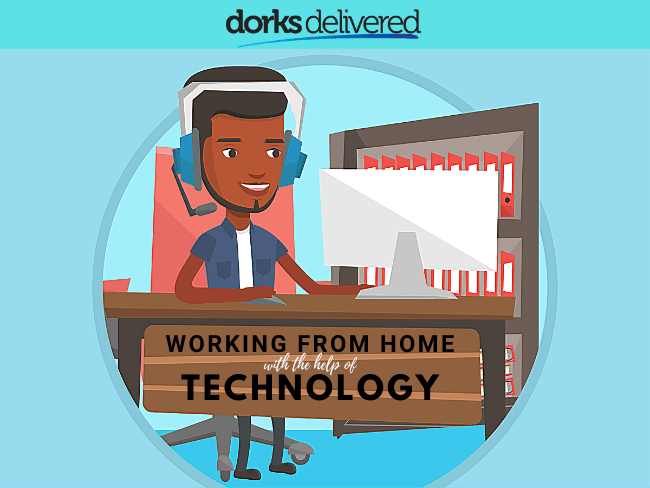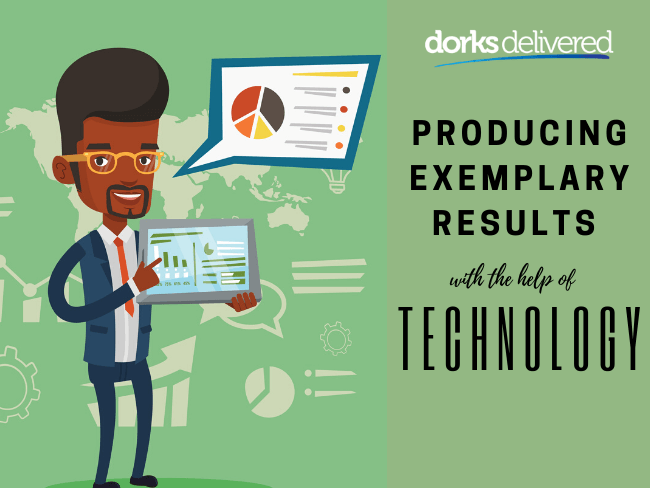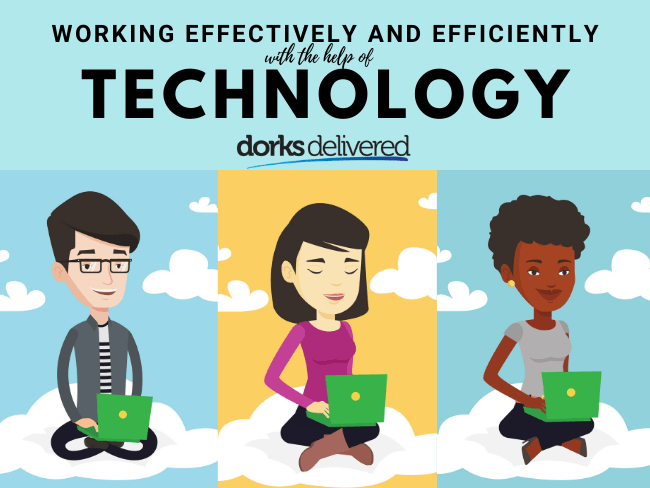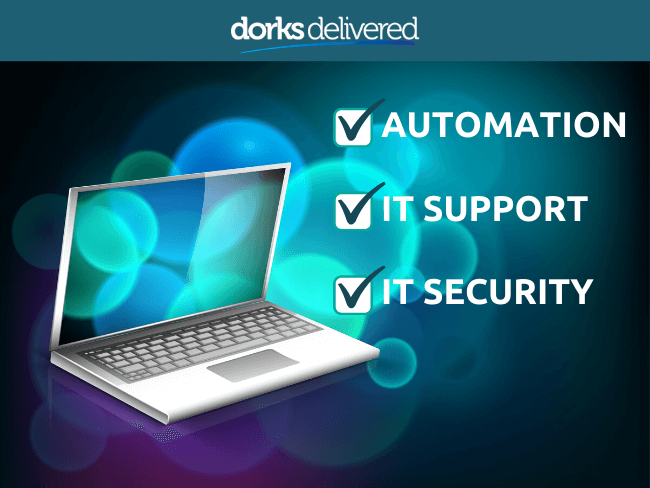There are always new strategies to help you maximize your success rate, whether you are just starting your business or if you have been running one for quite some time. Consistent improvements to enhance your business are critical to its success and sustainability. The few things to consider are professional development, high-quality products and services, customer support, and reliable IT support. Always remember that no matter what category your business falls in, the most important measure to consider is to provide your employees and customers with extreme value. Providing value in the lives of your customers and employees is significant when thinking about creating lasting business success. This might be challenging at first but as long as you believe in your ability and with your technological foundation, everything will work as it is. In this episode, Madeline Clift talks about the most effective ways to enhance your business.
Josh: G’day everyone out there in podcast land. We’ve got a guest here from Level Up Chartered Accountants called Madeline Clift, and she’s going to be going through some awesome ways that you can enhance your business methods and processes with the help of technology. So Madeline, a quick question for you. What would you say is the number one thing that businesses can implement to make sure that they are able to enhance their processes?
Madeline: It’s really listening. It’s a weird one, but that’s probably the best one that you can do, make sure you’re listening to your staff and your clients. The first thing we’ve done was making sure that the business runs smoothly for ourselves internally as a company ourselves, even though we’re accountants helping other businesses, is we ask our staff what they want. We make sure that they can do their job to the best of their abilities, and it’s really paid off for us, especially during this scary pandemic time.
Josh: Yeah, it is definitely a time of unknowing, isn’t it? And I think you’re on the right page there, where you say invest in your staff is very, very important. We were given two ears and one mouth, so use them in that ratio. Listen twice as hard as you’re talking.
Madeline: Exactly.
Josh: That’s very, very good advice. So start by listening and making sure that you’ve got the processes in place to get rid of the deadwood, I guess, would you say? How would you go about making sure that you do have a team of unicorns?
Madeline: Team of unicorns, that’s a funny way of putting it. We call them wizards actually, funnily enough.
Josh: Oh, wizards.
Madeline: Yeah. We’ll have to tell them that they were referred to as unicorns.
Josh: Yeah. Or ninjas. Sometimes I call them ninjas as well, but yeah.
Madeline: That’ll work too. Yeah, so our internal wizards, the first thing that they said to us was that they actually love how simple it is to work away from home if they need to. A lot of the guys have kids. This was long before pandemic time, but the guys were like, “Oh, I’m really glad you guys just gave me a laptop that sits on a desk with two monitors, because I can go home and work if I need to, if my kid gets sick for the afternoon,” things like that. And because we invested in them right from the get-go, that wasn’t an initial cost for us when everyone had to start working from home. Everyone was already ready to go. They took their laptops home and they even stole, basically, half of the monitors that we had floating around the office, so that they were even more set up at home. Everyone’s working with two screens. Everyone’s super comfortable. And that was just from that simple thing of listening. It’s really already paid off for us when it comes to stressful times. We know our IT provider, again, was really stressed out just trying to provide laptops for the week to get other businesses sorted.
IT doesn’t have to be expensive. If you’re starting a business and need reliable IT support and services, fill out the form to learn more about $1 IT services.
Josh: Being ahead of the curve there’s really important, and it’ll pay off in significant quantities, I think you’ll find over the next few months and years. Because it means that your commercial overheads from a commercial real estate perspective can be kept a bit lower.
Which means that your footprint, that you’re putting your carbon footprint if people are working from home, is lower. Your time wasted between travelling is lower, which means people have time to spend with their family. They’re spending less time and money on maintenance for cars. It’s by far the most sensible way to go.

Josh: And one of the things that I found, actually, after we started going through the remote workforce, this is probably now 2013 or so, we found it took a little bit of refining and adjustments for people that were used to coming into work. And we put in systems and practices to make sure that we had different KPIs, that we’re able to manage around that. What would you say would be a method that you guys are using to be able to monitor and manage your staff to make sure that they’re not having a few sneaky looks at Facebook? Or maybe they are. Maybe you’ve got that written in their agreement.
Madeline: Technology-wise, we’ve actually already got a monitoring system in place. The guys know that they’ve got ActivTrak on their laptops. So if they’re ever doing something they shouldn’t be, like installing Bitcoin to try and make money, it flags our IT subsidiaries. There’s one method, I suppose. We make that clear so the guys know that they can’t be stuffing around.
Madeline: Second one, which we’re quite lucky for because, in our industry, we have to report billable hours. So everyone has to put in a timesheet for what they’re working on. It can be done simplistically, like you can say, “All right, for the first three hours this morning, I’m going to be working on this client’s data. So I won’t be free, don’t talk to me.” But then we’ve actually got the timesheet logged in there and saying, “Okay, well, they’ve actually done all of the work papers. They’ve done the end of financial year job for the entire client and all the individuals.” Things like that.
If you need assistance with your automation, talk to a dork. Fill out the form below to book a free one-hour consultation.
Madeline: Even for our admin staff at the moment, them working remotely, they’re doing timesheets per hour. They’re much smaller slots, but they’re still actually putting in, “Okay, well, I actually spoke to this client for half an hour on the phone.” It may or may not be billable, but they’ve at least put that timesheet in.
So at the end of the week or the fortnight in the pay period, the director and I are able to go through those timesheets and double-check, “Okay, well, actually, you’ve worked a 12-hour day.” Funnily enough, I find that more of the staff are spending more time, realising, because they’re not doing anything at home, they’re actually doing more work, which is really funny. But we’re really lucky.
Madeline: Yeah. Timesheets and actually the software tracking systems are probably the best bet, I would say, for most business.
Josh: Cool. And so I guess we have two different models of clients. The majority of them, we charge a set rate per month where we just give them unlimited support, which works great for the clients. And then we guarantee their uptime to make sure that they’re not. If they have downtime, in fact, we pay them. So we don’t want them to have downtime. So we make sure they don’t have downtime. So we’re fighting for them to be up as much as possible and to be as efficient and utilised as possible. So that’s the model of payment that we have for our customers.
Josh: But for our staff, we have a similar model where we have hours that are measured, and then KPIs, which are normally on the efficiency of the work that was accomplished.
Josh: So say if you have a client that’s bringing in $2,000 a month, for instance, and that client calls up 10 times and the hourly rate, or the amount of time that client is spent on, if that was saying a thousand dollars worth of time, the staff pool bonus is 10% of the difference. So they’d only get 10% of the money remaining. So it’s in everyone’s interest to make sure then it works, don’t go down, and they stay up as much as possible.
Josh: Then that’s a sort of the big metric that we found because we put in place a program assistant called ObserveIT, which lets you see all the screenshots and keyboard logs and activity and things like that. And then we built a couple of other bits and pieces ourselves so that we can see if the sort of traffic and how utilised each PC is and if one’s running slightly slower and all that sort of stuff. But when it came back to it, we just needed to make sure that the staff and the business were steering in the same direction, was the big thing of making sure that the reasons why businesses are working with you are bred into the culture of your business. So then it sounds like you guys are doing pretty well the same thing, which means you’re a step ahead of a lot of accounting firms out there. Hats off to you.
IT doesn’t have to be expensive. If you’re starting a business and need reliable IT support and services, fill out the form to learn more about $1 IT services.
Madeline: Yeah. I don’t like to toot my own horn, but we think we’ve really taken it to a different approach, I suppose, then a lot of the boutique accounting firms in the past.
And then even at the moment, we’ve found other firms that are roughly the same size as us, the way they approach, I suppose, how they treat their staff, the hierarchy in the office, they’re all 50-year-old practices. They’ve upgraded maybe the technology. They know how to use Xero now, which is great, but all of the rest of their systems and their processes are just stuck in the last century.

Madeline: Yes, we do. We use both. Then again, a third system, monday.com as well, just for tasks and scheduling. Yeah, that was even simpler to use for our staff. Pretty much all of our systems are cloud-based. We don’t want anything not to be on the cloud because we actually feel that that’s more secure for us. So there’s nothing wasted and paying for installing systems. I think the only thing that we pay for a subscription for is a PDF-editing software system.
Josh: That’s not too bad. As long as you’ve got the security behind it. I’m a big advocate for the cloud as long as it’s been set up correctly. And that’s another thing, a lot of people sort of just hear lots about it on the internet and read about it. And then Yellow Pages, even we’re doing big campaigns about it, saying, “Everyone needs to move to the cloud,” and I’m like, “Yeah, okay. That’s cool.” As long as you know your data is secure, encrypted, and isn’t going to be attacked.
Josh: My goodness, the number of solicitors and accounting firms that we’ve seen that have vulnerable data that’s out there that we’ve been able to find, show them and they’ve just gone, “Oh my goodness, how’d you get access to that?” Or, “You shouldn’t have access to that.” And I’m like, “I know I shouldn’t.” I said, “And there are other people in there that wouldn’t be telling you that they’ve got access to it.” I said, “We’re one of the good guys to help you guys out.”
Madeline: Our biggest expenses as a business actually are the people we employ to do our IT and I’m happy to speak their name, which Connected Platforms, and our actual staff. Those are the biggest costs for us as a business. The staff that we employ and how much we pay our IT company to manage everything that we’re doing on the cloud. So those are our two biggest investments that I think are the biggest payoff, really.
Do you need help with backup and recovery? Fill out the form to get in touch with a Dork.
Josh: Absolutely. That’s a differentiator with a lot of businesses. Some businesses look at the staff and some of the other required services, such as IT, as a liability and an expense, where really it should be an investment.
It should be something that you’re sitting there and your Connected Platforms hopefully sits there with you on there, as like a virtual CIO or CTO to talk about how they can leverage new technologies, and what’s your exit strategies for the business, and how are you going to be going along with that to make sure that your practices have built up around that? I would completely disagree with what I just said if it was 50 years ago, but nowadays, you can’t run a business. It’s kind of like saying, you want to run a business without electricity. It’s like, yes, it can be done. Is it the most efficient, the easiest way to do it? Absolutely not. IT is definitely where people need to be investing their time and money. IT automation and marketing would be our biggest expenses internally.
Madeline: I think it will change, depending on industries. For example, we have a lot of clients, where their IT isn’t obviously their biggest investment. It might be the equipment that they’re using. Because they might be that kind of industry, where they’re actually like earthmoving or something like that, that’s quite a big investment, earthmoving machinery and things like that.
Madeline: Then secondary to that. It’s always the people that they employ. They need to trust their staff. They’re moving those million-dollar machines around and things like that. So I think those two are pretty integral, regardless of the industry that you’re in.
Josh: I agree, obviously you have set up costs and bits and pieces. If you’ve got, as you said, earthmoving equipment or any sort of industry-specific equipment, it’s going to have a big cost. But the good news is, I guess it’s also equity sitting there in the business that if shit hit the fan and they had to start getting rid of staff, the equipment they could sell and it’s going to give them something back, hopefully, unless it’s completely depreciated. What have you guys found that are things that many businesses or accounting businesses can put in place that removes staff overheads and things like that?
Madeline: Training in those systems, I think. The biggest problem with accounting, I suppose, is you’ve got a lot of young people coming out of university who, a hundred times work and study, then you’re really trusted and really, really knowledgeable accountants in their forties and fifties. There’s a definite gap there where you’ve got people who are incredibly tech-savvy and just want something done and know that they can get it done quickly. And then you’ve got people who are used to looking at the Tax Agent Master Guide, which is a book bigger than any Harry Potter novel. They’re going, “Check this index against this,” and they’re going, “Well, I could just Google it, mate,” where like, what’s the term or phrase kind of thing, like, just so we can make sure that we’ve got the ruling right if we want to make changes. So training and investing in those staff is the biggest thing that’s kind of, I suppose, saved us, especially during this pandemic.
IT doesn’t have to be expensive. If you’re starting a business and need reliable IT support and services, fill out the form to learn more about $1 IT services.
Madeline: I know that other businesses that we engage personally have just absolutely had to shut down, apart from their few youngest employees who have to run the show at this point because they can work remotely.
They figured out how to use the laptop and remote login to the systems. Things like that. Their older employees are just like, “Well, what do I do? I sit at home and do nothing?” It’s like, “Well, I can teach you how to, I don’t know, use Slack or something like that.” Like a direct messaging system, that like, if you’re struggling with Facebook Messenger, going to be a problem.
Josh: A degree in Google is what I refer to that as. People just need to know how to search for what they need to find. You don’t need to know absolutely everything. You just need to know how to use the tools that you’ve got to be able to find the answers, and the tools can be people or it can be your search engines or documentation systems and the like.

Josh: And the way I would relate it is the biggest business that’s operating or one of the biggest businesses is McDonald’s and it’s run by 14 and nine-month-year-olds.
Madeline: Yes, step one, step two, step three, press the button. It’s all automated. Yeah.
Josh: Exactly. And so getting those processes in place is super important. What do you normally use to create the documentation? Is that something that you’re doing with the likes of video recordings or text-based things or both, or situationally, are you putting people into a situation where you can have them learn to become the teacher?
Madeline: Yeah, actually funny, you just said that just last learn to become the teacher. That’s probably pretty much the best thing, we want to level up the staff that have spent years in the office because once they can write their own processes and teach someone how to do it, it’s… I have two 18-year-olds in the administration team, reception and administrative assistant. They’re sitting there telling the 40-year-olds, “Okay, this is how we’re going to use this process.”
Madeline: It gets rid of that hierarchy as well because you’ve got an 18-year-old teaching a 35-year-old how to use a program, but we’re not using a kind of like recording processes because everyone’s an individual in how they teach. Everyone’s, I suppose, an individual on how they learn. So there’s no one set way of learning. I think we’ve discovered that a lot, just through focusing on the individuals in the office. It’s one-on-one, 100%, but we document what needs to be done.
IT is indispensable but it shouldn’t cost hundreds of dollars. Fill out the form to learn more about our budget-friendly on-demand IT solutions.
Madeline: We use another program called MyGlue. So that one’s again referred to from our IT company.
They use it for a lot of their internal processes and you can step out what you have to do for onboarding a client, like the step-by-step processes with that. We document the basics, but it’s really a one-on-one experience. Yeah. That’s why the business has basically quadrupled in size over the last year and a half. Just on that one-on-one mentoring, it’s just that keeping to the basics in a PDF document.
Josh: Talking about MyGlue, that’s a, I think it’s a part of another product called IT Glue.
Madeline: Yes, it is, sorry, yeah.
Josh: Yeah, yeah, yeah. Okay. So when you said MyGlue, I’m thinking, I’m pretty sure it’s IT Glue. It’s a fantastic tool. We have the same family of tools that we use internally, and having that documentation there, as you said, not everyone learns the same way. We’ve spent a lot of money to have multiple ways for people to learn, videos of onboarding of new staff, as well as then screen captures, as well as then videos that they can watch from a screen recording, as well as in the text document. So you can then have your own internal research to be able to look it up and find out something.
Josh: The biggest thing is to start with something. Having something better than nothing. Having a process there and being able to write yourself out of the business is really important. You don’t want to be sitting there working day in, day out, as the business owner. You want to make sure that as long as you’re not in a position where you can become redundant, you want to be able to make yourself redundant.
Madeline: Exactly. It’s funny. Bring it back to you were mentioning the DISC profile before. And a lot of accountants being just one type. We used to do the DISC profile on all new employees coming in, but I no longer bother with that because I want that personality that’s able to speak to clients and isn’t just really process-based. It’s just like, “Well, no, I just follow the process.” We go, “Well, that’s not being an innovative creative accountant.” We don’t want you to absolutely defraud the tax office or anything like that. But there are ways that you can be innovative and help the client in that business advisory way as well. So if it leads back into that we don’t want to be that typical accounting firm where you’re just following a step-by-step process and individualising it to every person and employee, making sure that they fit in.
Josh: I think it’s important to be personable and not be like what the industry says. Like I’m a, as I said, I started in mom and dad’s garage, but that doesn’t mean that I’m not the guy that jumps up on stage and talks to everyone about how they can better their business. It’s about making sure that you are the thorn in the bush if everyone else is the bush. So be the one that stands out and be refreshing.
IT doesn’t have to be expensive. If you’re starting a business and need reliable IT support and services, fill out the form to learn more about $1 IT services.
Madeline: Yeah. We’re definitely not your typical accounting firm.
Really accounting is a secondary, I suppose, skill that we want you to have if we’re hiring you as an accountant, we actually want you to be able to talk to us and have a meeting with us and want to work for the company because I’ll tell you what, the number of offices or typical, even real estate agents I’ve worked in too where you walk in and it’s sort of funeral tone to it. Because there’s no sound. It’s just a quiet receptionist sitting there that goes, “Hello. How are you?” And speaks very professionally.

Josh: Well, it sounds like you’re the Google of accounting firms. If anyone out there in podcast land’s looking to level up the way that their business is running and make sure that they’ve got someone there that they can give you advice as much as they can give you without being a financial advisor, I’d definitely suggest checking out Level Up Chartered Accountants. Is there anything else that you’d like to cover off on, Madeline, before we finish the podcast?
Madeline: Don’t be surprised at how young some of us are. If you are interested in coming into the office and seeing how things go. We do have people that are experts, been in the industry for 20, 30 years. But Drew himself is in his early thirties, me myself only just turned 30, I’m pretty much the captain of the ship. So yeah, we’ve got a lot of young wizards in there, and that can be scary, I think, for some businesses where they’ve known their industry, it’s been the same way for 20, 30 years. And we don’t disregard that. We know that it’s your business kind of thing. We’re just going to make sure one part of it runs smoother because we’ve taped up, we’ve levelled up so we can hopefully level up at least one part of your business and maybe it’ll flow through to the rest.
Josh: You heard it from the head wizard’s mouth. And I think that’s absolutely appropriate because when I started in the business, we were dealing with much bigger businesses. When I was in mom and dad’s garage 13 years ago, as a… Far out, was I, 19 years old at that stage. I was talking to these businesses and they’re looking at me going, “What could you possibly know?” But people just, at the moment, anyone gave you the… Open up their ears, and that’s circling back to what you were saying earlier. People need to listen more than they’re talking. The moment they were able to listen and they went, “Oh geez, this person knows what they’re talking about.”
Do you want to learn more about technology for business? Fill out the form below to get a callback.
Josh: I know myself, I was a few years ago, sent over to Vegas to do a presentation in front of three and a half thousand IT businesses about how we automate some of our internal processes.
And I was freaking out because I’m thinking, Oh no, I’m like nearly 30-ish. And these people, when I’m looking in the audience are like you said, the 50s, 60s, 70s. And I’m going, they are going to think just I’m a wally. They’re probably still talking about punch cards. Anyway, I get up there and I start talking. And the first minute, you see people’s eyes sort of like not really paying attention. The second minute, everyone’s there taking notes and writing down things and you could see their attention. I went, “Awesome.”
Josh: It just takes a couple of minutes for people to see the change and the benefit that you can have. And it’s refreshing, I think, not doing things the same way that people have been doing it for decades. It’s good to have some fresh blood in business, to be able to push that along and have that experience, have some of the nomads in there, the grey-haired nomads, but also have some of the younger whippersnappers that are going to be able to break out, change, a difference.
Madeline: Definitely. Yeah. We’ve found a happy medium, I think.
Josh: Sounds good. Sounds exciting. And yeah, if anyone out there does want to have a discussion with Madeline, definitely jump across to levelupca.com.au That’s levelupca.com.au, and you can check out what they’ve got on their page there, and probably even be able to book in a session to jump in there and meet the team and pat their dog.
Madeline: Yeah. He’s Chewy, he’s lovely.
Josh: Chewy. Awesome. Well, I’ve loved having you on the show and look forward to seeing how everything goes after this COVID situation. If anyone has any questions or has any reviews or feedback, make sure to jump across to iTunes and leave us a review, give us some love. Everyone out there, stay healthy and stay good.
[module-379]




























